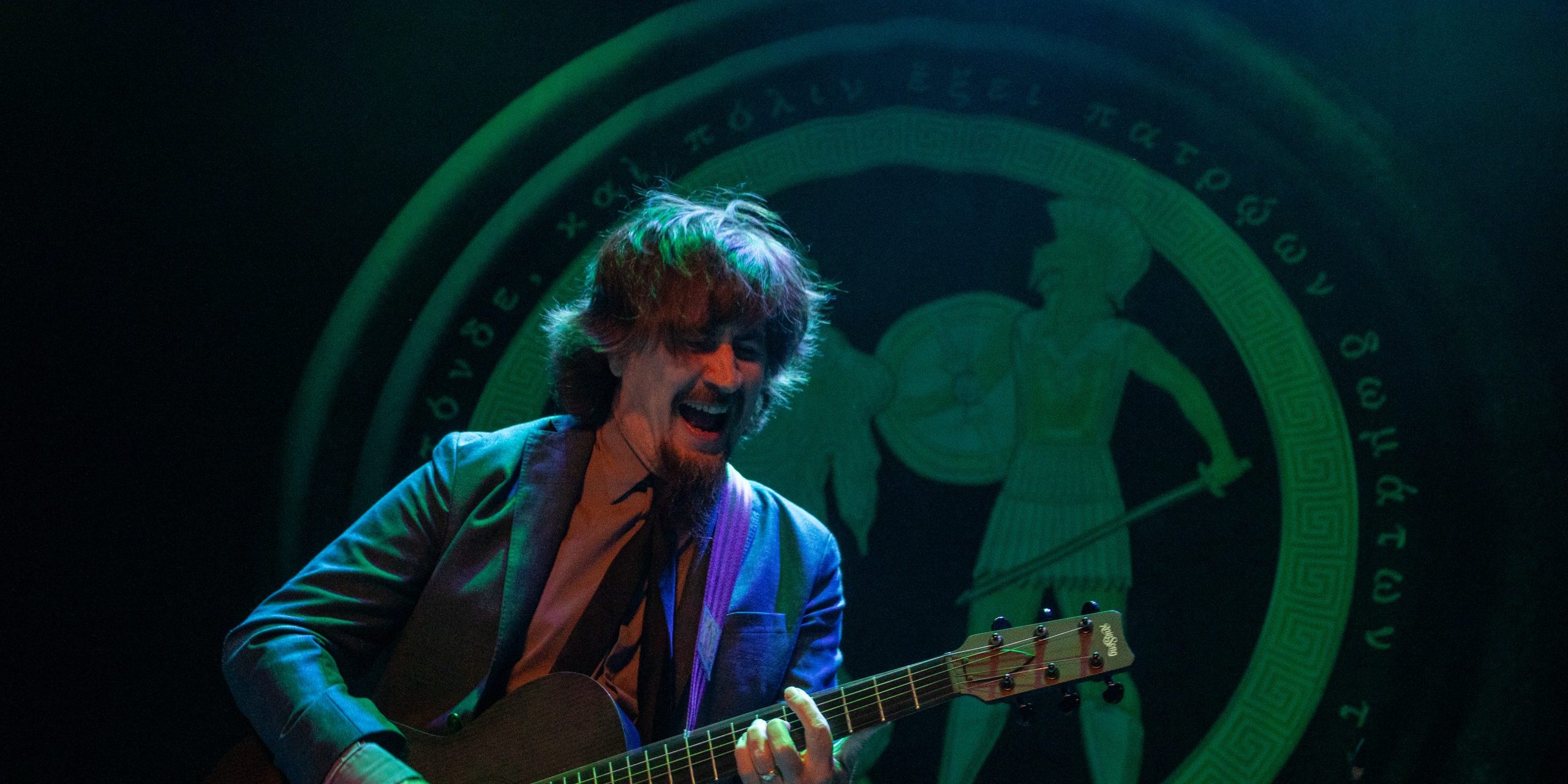Photos by Evan Ibarra
“I am going to make it / through this year / if it kills me.”
Hearing the chorus from “This Year” by the Mountain Goats a few days before both turning 17 and turning in college applications all on November 30th felt like the band wrote it with me in mind. It was the second song on a playlist aptly named “17” that one of my closest friends Ryan had sent to me in the wake of two of the biggest milestones in my life so far. I put it on loop throughout the night, and it gave me the strength to push through endless Google Docs drafts.
Nearly three years later, I found myself walking to the Belasco in downtown Los Angeles for the Mountain Goats’ Spectral Tide tour. The humid air outside gave way to a grand interior topped by an ornate dome that reached the heavens. I caught my breath; this place felt more like a deity’s palace amidst catacombs rather than a concert venue. I shimmied through the just-forming crowd to the downstage right barricade where I stayed put for the night.
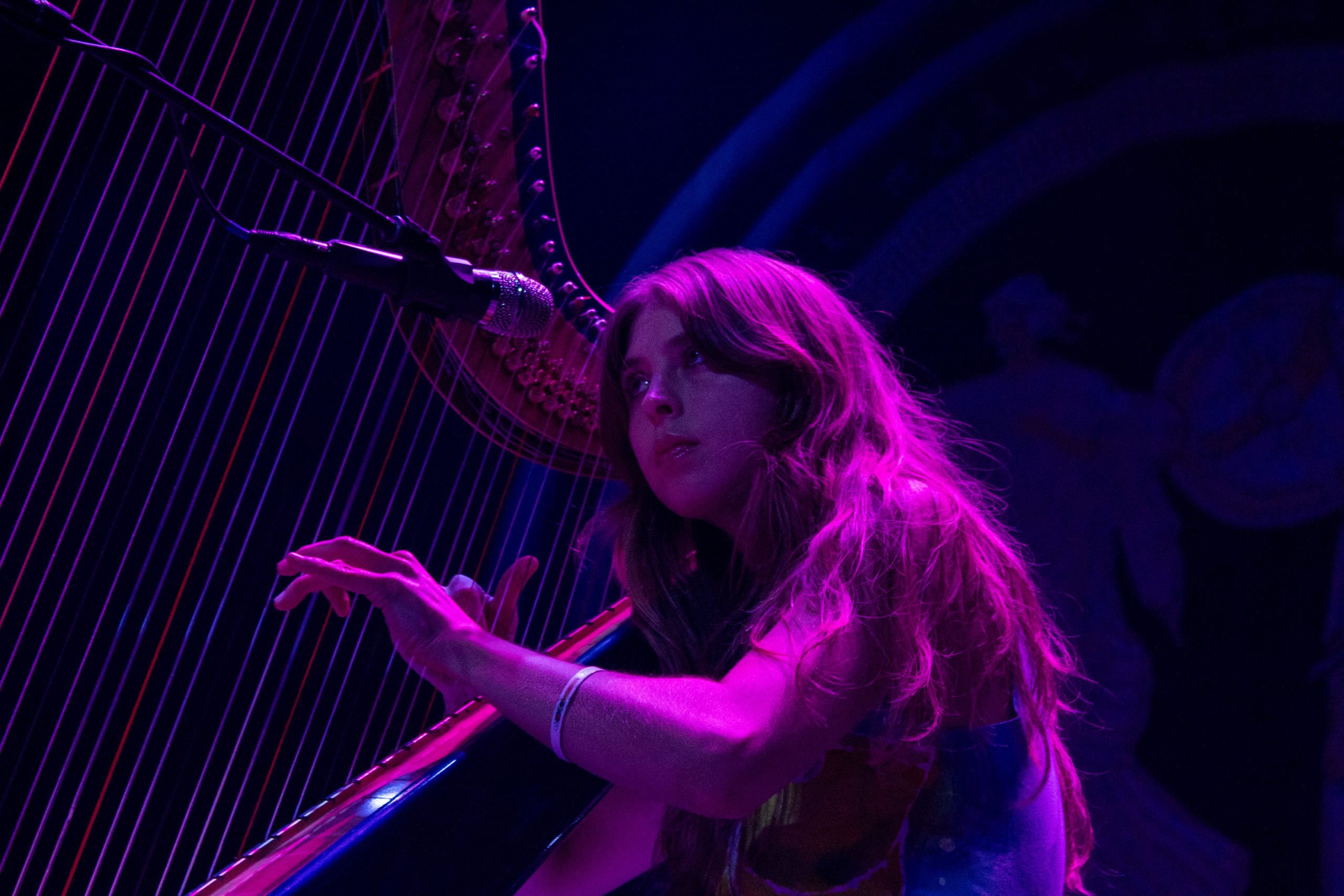
The opener, Mikaela Davis, took to the stage promptly at 8 o’ clock. As soon as she plucked her first note on the harp for “Cinderella,” I found myself swaying to the beat in a trance-like state. The blush-pink stage lights colored a haze lifting to the top of the Belasco’s dome, as though heaven began mixing with earth. Drums and an acoustic guitar supported the harp, but never overpowered it. Davis’s ethereal voice softly, yet firmly transfixed the crowd around me to shift back and forth on their feet.
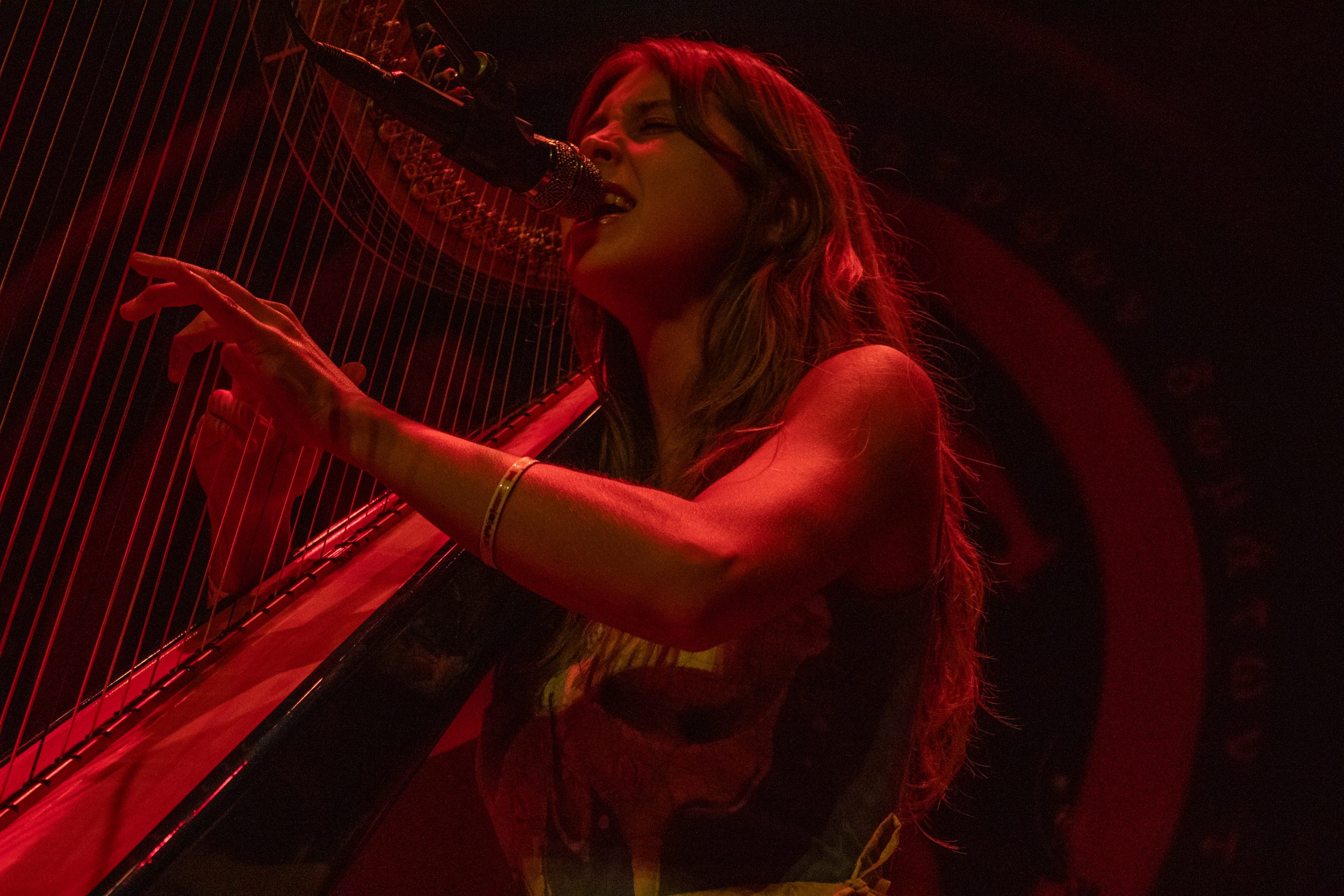
The more upbeat songs “The Pearl” and “Saturday Morning” did not hold back on the harp, but added a country flair to the whimsical melodies. Davis punctuated the time between her songs with anecdotes of how she had come a long way from her native Rochester, New York. Amongst the elegant music and technicolor lighting, the tapestry onstage featuring the ancient Greek-themed cover of the Mountain Goats’ upcoming album Jenny from Thebes teased me about the treat coming up next.

A voiceover led the audience through an exercise where we imagined “what we would have developed into as children if the world never disregarded our dreams.” A grin struck my face as soon as the Mountain Goats took to the stage with “Jenny III.” I rocked back and forth, taking the whole scene in. Sunny yellow lights cast a warm glow across the band. Frontman John Darnielle matched the mood with his animated voice. The crowd knew how to party, even with an unreleased song. The more rock-oriented “Murder at the 18th St. Garage” up next riled up the crowd even more, contrasting Darnielle’s steady voice. Feet shuffled every which way, beating up the floors of the Belasco.
The band, composed of Peter Hughes, Matt Douglas, and Jon Wurster, soon left for Darnielle’s solo set. “Hebrews 10:11” colored my imagination with fantasies of “masks hanging on the tomb walls” and “bright candles in the manor.” Although eerie in mood, Darnielle led us through an encouraging tale that had me transfixed on every word he uttered. Following the song was a humorous rant about how uncles tend to use Facebook to flaunt their “Internet speak,” especially for heavy political topics that they have no authority to be complaining about to begin with. Laughs ensued, creating the perfect set-up for “The Pig Song.” Darnielle lamented to us about how raising a child as a musician meant that all your peers would be begging you to make a childrens’ music album. Thus, he created “The Pig Song” for his son Roman in spite of it all.
As Darnielle began I slowly took my phone out to record a snippet. Not long into the first verse, he suddenly pointed in my direction and shouted, “Put that phone down!” My face reddened as I realized my phone’s camera light had been the only one on near the stage. Mortified by nearly a thousand people staring right at me while laughing, I stayed still and resigned myself to not look directly at Darnielle for the rest of the show to avoid another callout, lest he think I was a typical Zoomer on my phone.
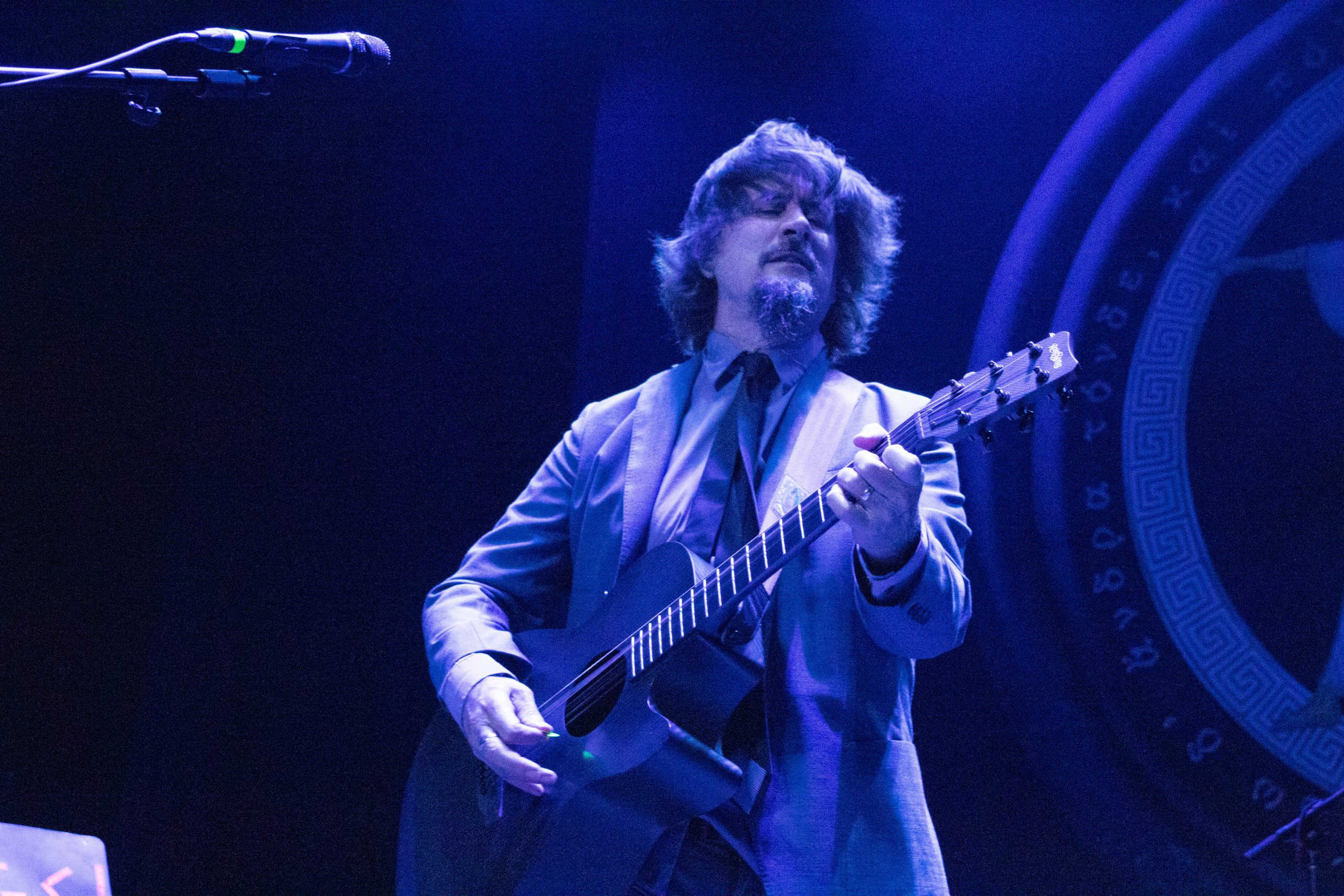
The rest of the Mountain Goats rejoined Darnielle to start the latter half of the show. Political imagery in the love song “International Small Arms Traffic Blues” raised my eyebrow, but I quickly understood the metaphors as conveying a tragedy not unlike Romeo and Juliet. “Clean Slate” tickled my ears with the backing maracas and playful piano notes.
The Mountain Goats left the stage, but came back for an encore after a few minutes of boisterous applause from the audience. “Love Love Love” and its bittersweet lyrics supported by acoustic guitar stood out to me out of the few songs played. Staring at the Belasco’s dome and gazing at the colored smoke hitting the ceiling calmed me down and gave me a chance to ruminate over some of the lyrics’ relatability.
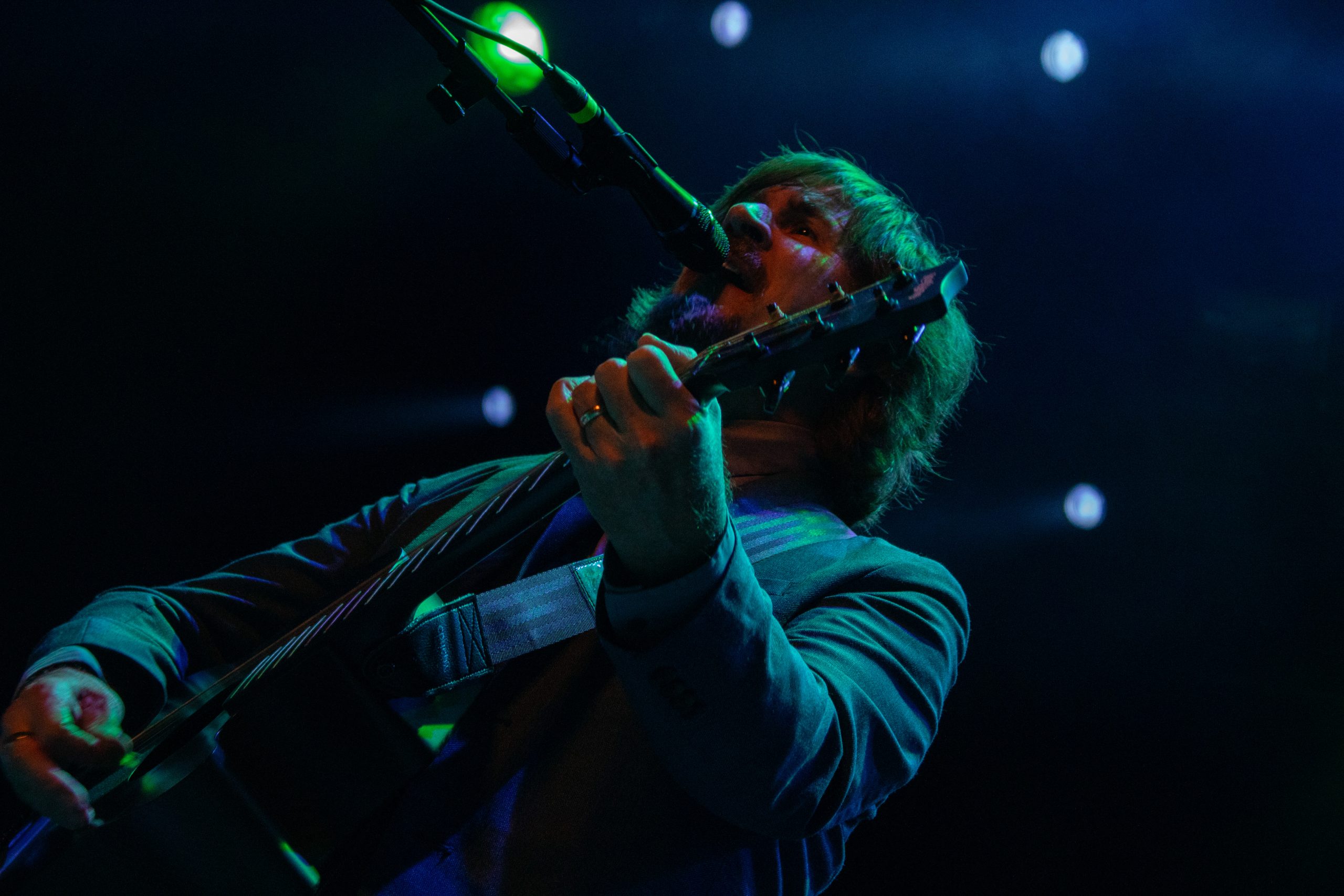
The moment “This Year” hit my eardrums, I pushed my embarrassed memory from earlier in the night aside enough for me to yell out every lyric. The entire crowd became one rejoicing spirit, and my heart soared while hearing myself and others cry out, “There will be feasting / and dancing / in Jerusalem next year.” The last time that line truly hit close to home, I was staring at the full moon through my window on the eve of my 17th birthday. Not having seen my friends in months due to lockdowns, I doubted if the world would ever reopen again for me to fully celebrate anything. But now? I finally made it out of the mess, and could now feast and dance to my heart’s content. The song finished as soon as it had started, and we gave the band thunderous cheers.
Darnielle picked up the microphone again for a few last words, and I did not expect for him to turn my direction and look me in the eye. He apologized for the callout during “The Pig Song,” saying that he initially stopped because my light partially blocked his vision of stage right. He recounted that, for the rest of the show, he noticed the glum expression on my face as I stood still at the barricade and felt guilty about raising his voice at me. A minute later when Darnielle and the rest of the band descended the stairs in front of the barricade, I apologized for my bad concert etiquette and reassured that I wasn’t “a stupid TikTok kid.” Darnielle stopped, took my hand, and told me that the fact that I was worried about my behavior was enough for him to acknowledge my consideration towards others. Fans around me swarmed me to ask how it felt to speak to the frontman of the Mountain Goats; all I replied was that I didn’t see him as some type of idol, but as a person I respect.
Leaving the Belasco, I took a deep breath and mulled over the night. Through all the emotions I felt over the past few hours, all I could do was appreciate the timelessness of music. It garnered indescribable experiences that put the mind, heart, and spirit at rest.
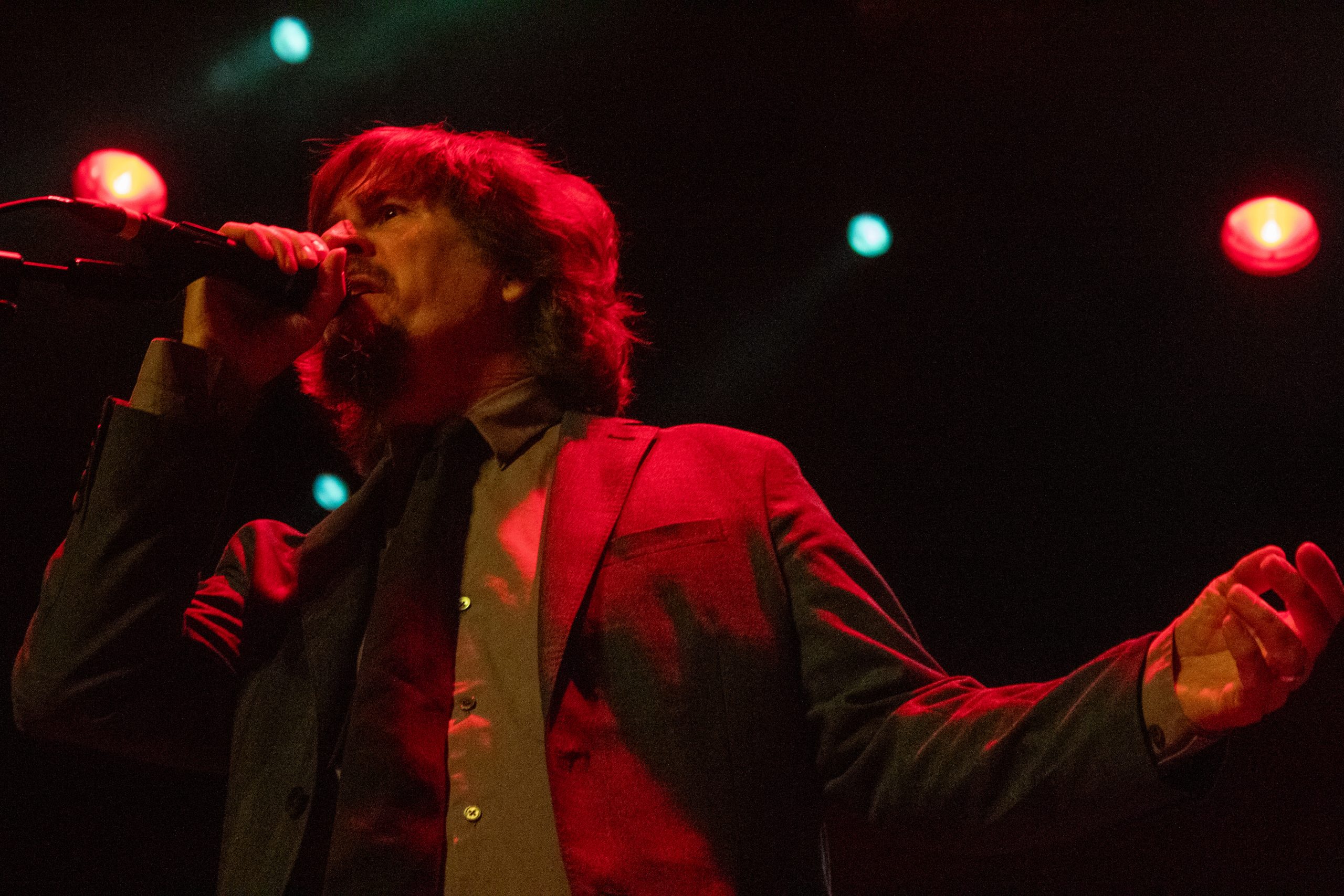
A note from photographer Evan Ibarra: With no barricade to separate the stage from the masses, The Mountain Goats embodied “folk” as “music for the people.” The frontman and heart of the band, John Darnielle, made warm eye contact with each audience member, craning his head towards the balcony and out towards the back of the theater to make sure no one was left out. This concert was a true melting pot: families that came all the way from Las Vegas, Los Angeles Gen X-ers, and queer high school students who were out way past their bedtime. I met a girl in the audience who told me about how she came alone from the high desert to this concert. How it meant that much and how this was the closest place she could come to see them. It is as though Darnielle knew this because when he began to sing “San Bernardino,” I looked over to see that girl cry. The tenderness of that song, about a town that people in Los Angeles turn their nose to and would rather forget, was so genuine. It is a song only borne from experience; coming from Claremont and the Inland Empire, I am convinced he made that song for people like her, to feel seen and heard. Folk rock bands come and go, but The Mountain Goats feel eternal.

